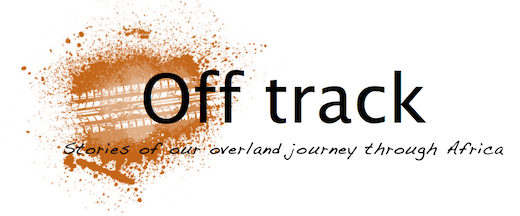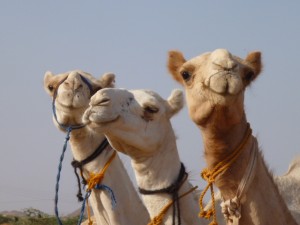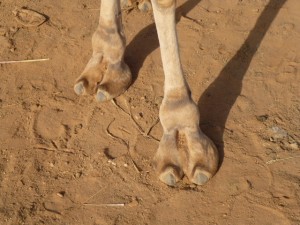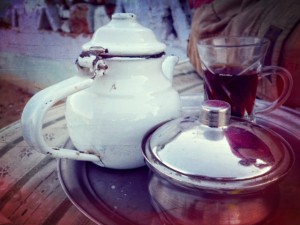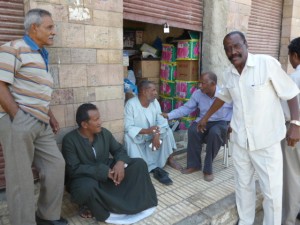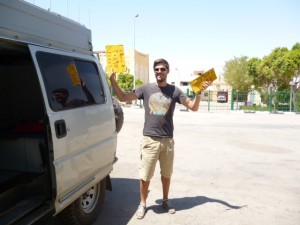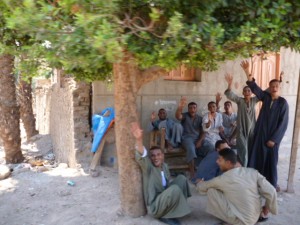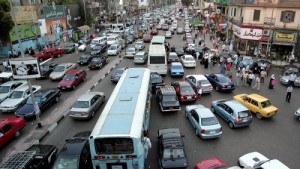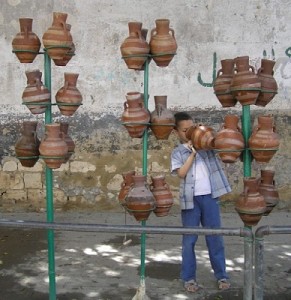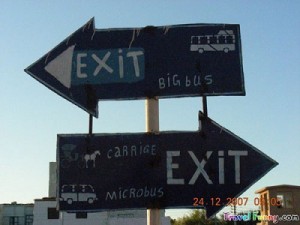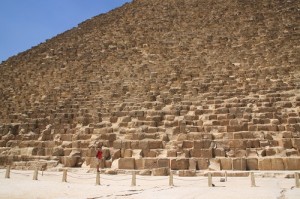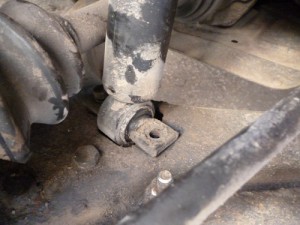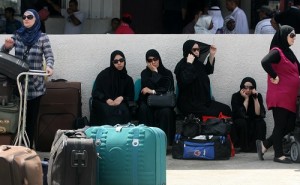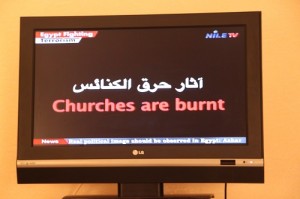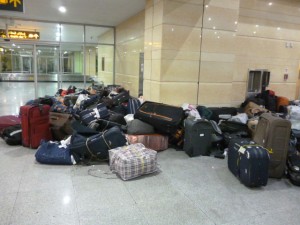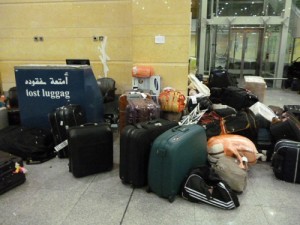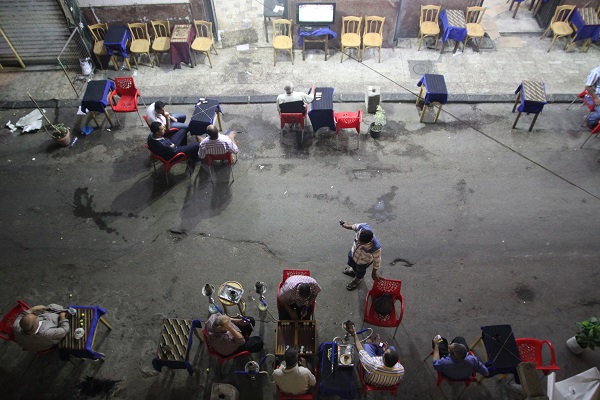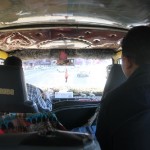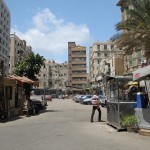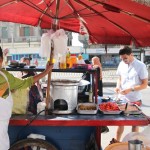Ancient beauty and Sudanese hospitality
When writing this, we are on the road to Ethiopia. The further we get, the greener the surroundings. The ground is more and more convincingly covered in grass and green bushes. Less camels, more cows. Less sand and dust, more mud. As we get closer to the border, the temperature decreases slowly to under 35 degrees for the first time since…well…a long time. The smell changes from dusty with an occasional intermezzo of oil, fried chicken or burning litter to fuller of spices, more humid. It smells like green, like plants, trees and rain. The roads are muddy and red.
The air has turned from sauna-like dry to steambath humid. Which has two downsides: 1) we are sweating just as much as before and 2) my hair has exploded as never before! In combination with driving with the open window (indeed, no airco…), a sort of hair- conehead grew on top of my head. I have no conditioner that’s tough enough for this kind of challenge. Hopefully I’ll get lucky in frizzy-haired Africa. Until that day I’ll be carrying this beehive…
Ancient beauty and hospitality of Sudan
Most of us know Sudan only from the news, mostly in a bad light of conflict, war and refugees. I think we all can still remember the images of the Darfur region, a problem that by the way still hasn’t been solved. I didn’t really know what to expect but a strict Muslim, sandy and hot country in which signs of conflict would be visible. All this turned out to be true, but we also saw some beautiful other sides of Sudan.
Sudan has a few impressing ancient sites with pyramids. We first visited Jebel Barkal and the Meroe pyramids. These are a lot smaller, but still full of grandness because they’re inspired on the impressive arcitecture typical for ancient Egypt. What especially left an impression, was that we could drive with the car right up to those pyramids and setup our camp right beside them. It is difficult to describe the royal feeling we had when watching the sun setting over the red stones while lying in our rooftop tent.
Some pictures from a trip to the camel market (with a real camel toe, hehe):
We also had the opportunity to share some daily rituals of the locals: breakfast in the office. We just happened to be there to get our coolbox fixed and they were so hospitable to invites us. The Sudanese take a tea in the morning (tea = 1/3 sugar, 2/3 tea), some also eat ‘oliebollen’, a dutch sweet pastry that is eaten at New Years Eve. Then around 10 a.m., they eat in the office. All colleagues gather around a large bowl with a mix of beans, egg and bits of falafel. With pieces of delicious white bread they spoon up the beans. Right hand, off course, left is used for spooning other business 🙂
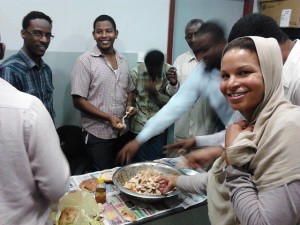
After attacking this delicious breakfast, all men retreat fast and leave the table behind like a animal carcas on which the lions have left no trace of meat.
Police checkpoints: windowdressing or actual sense?
The road from Khartoum to Gonder is filled with police checkpoints, every 20 km we get stopped. We always get pulled out with a typical nonchalant wave of the hand. They check our passports and still ask “Where you from, what is name?” They repeat our names in the way that kids learn new words. We were a bit annoyed by it at first, but later we thought we had figured it out: the asking officers probably can’t read roman writing. A good thing, because our visa has expired 4 days. But upto now, we got through without having to pay for our illegal 4 days.
Also the farther we get, the friendlier the police officers get. “Welcome, my friend” they shout heartily as they shake our hands through the window. No need to see any passports anymore. “This my wife?” they sometimes ask while pointing at me. Every time they asked, I pulled my head scarf a bit tighter. It took us 3 stops – my head scarf almost choking me – before we got that they get the ‘yours’ and ‘mine’ mixed up. I hope this friendliness is a sneak preview of the situation in Ethiopia.
Though we’ve also heard differently. Two Swiss overlanders told about the hundreds of beggars they encountered. They also had many people (not only kids!) throwing stones at them, either because they refused to handout money or sweets, or perhaps just out of boredom, or anger. A pair of deep dents on the side of their car were riding along as silent witnesses. I hope we don’t induce so much stone-throwing because the van has quite a few windows…
Nevertheless, we are really excited about visiting Ethiopia. Let’s see what awaits us on the other side of the border!
Read More
